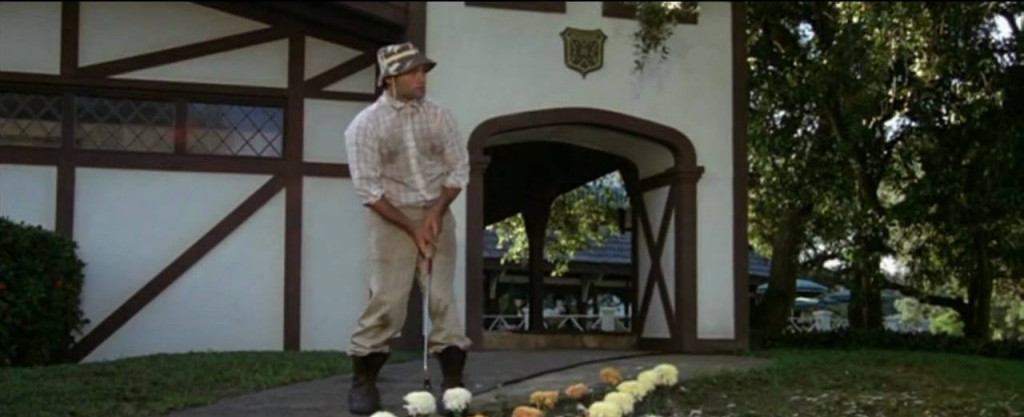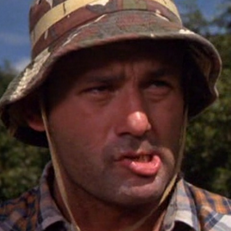Mentally Yours
There is a lot of discussions on here about the impact of the mental game. Opinions range from it being the most important thing about golf to it having no importance whatsoever. Bobby Jones said, “Competitive golf is played mainly on a five-and-a-half-inch course... the space between your ears.” Ben Crenshaw said, “I'm about five inches from being an outstanding golfer. That's the distance my left ear is from my right.” The movie Tin Cup is primarily about a psychologist who helps a driving range pro get his head straight to compete in the US Open. He does until he blows up at the end. There are numerous books about the mental game that promise to have you shooting better scores and many people swear by them. All of this seems like compelling evidence that working on your mental game can help you shoot lower scores, but can it?
Golf is a strange game. It costs you 2 strokes to advance the ball 350 yards onto a small patch of closely cut grass where it costs you another 2 to advance the ball another 30 feet doing this thing called “putting”. It seems an odd scoring system where a 3’ shot costs the same as a 280 yard shot. There are boundaries and hazards placed throughout the course that can cost you additional strokes, as well as other potential rules infractions like causing your ball to move. It’s quite mind boggling and takes near perfection to regularly score par. Even a novice player can occasionally attain a score of par which undoubtedly will plant a seed in their mind that they are getting better at the game, but reality often sinks in very soon.
Aside from playing the game of golf, you have practice sessions where you learn how to swing the club and hit the ball. There are different clubs with varying lofts and shaft lengths designed to make the ball go higher or lower and different lengths. Then you have a flat putter that is designed to make the ball roll across the ground on the green and into the hole. It’s possible that the ball will go into the hole from off the green, but that is a rare occurrence even for the most accomplished players. Conventional wisdom has taught us that putting is the most important skill to scoring since you use your putter on a majority of shots assuming that you reach the green in regulation. Harvey Penick used to say that the driver was the most important club because a good drive builds confidence. I tend to think that they are all important, but there is a lot of conflicting information out there.
Given that playing golf is a physical activity of swinging a club whether it’s a driver, wedge, or putter, how could anyone possibly think that your mind plays a significant role in moving the ball? Unless someone is telekinetic, their mind does nothing to move the ball, and the game is all about moving the ball closer to the hole. I played with a guy a month or so ago who kept saying out loud, “You suck!” before almost every shot. Dr. Bob Rotella is a proponent of the mental game who insists that playing with confidence is key to scoring to the best of your physical ability. Although that guy’s assessment of his swing was correct, he certainly wasn’t doing himself any favors with the constant reminders. The bottom line is that a bad swing full of compensations will produce inconsistent results, and no level of confidence will improve your swing. That takes education, preferably by a good instructor and dedicated practice. So again, why is the “mental game” such a big topic in golf?
I have read several books on managing the mental game. Even Dr. Rotella says that a player cannot become a winner simply by changing their thinking. Here is the way I look at this subject. Your physical ability to swing a club sets your potential score. Having a solid mental game cannot improve your potential, but it can help you shoot closer to it on a more consistent basis. One of the main benefits of a sound mental game is the reduction of tension. If I am not hitting the ball well, it is usually because I am tensed up for some reason. There are all sorts of things that can create tension whether it’s dealing with tough situations in life or perhaps a stressful situation on the course like hitting into an island green. Learning how to control your emotions on the course will not guarantee that you hit that green, but it will help you hit it more often. It will also help you deal with the situation better if you fail. How many times have you seen someone miss a tough shot like this and throw a tantrum? All too often I’m afraid. One of the key aspects of a sound mental game is focusing on the shot at hand and not the result. Whether you are facing a bogey or a birdie putt, each stroke counts as one. My best scores have happened when I played in a calm state where I didn’t have a care in the world. If only I could bottle that and sell it.
-
 3
3









6 Comments
Recommended Comments
Create an account or sign in to comment
You need to be a member in order to leave a comment
Create an account
Sign up for a new account in our community. It's easy!
Register a new accountSign in
Already have an account? Sign in here.
Sign In Now